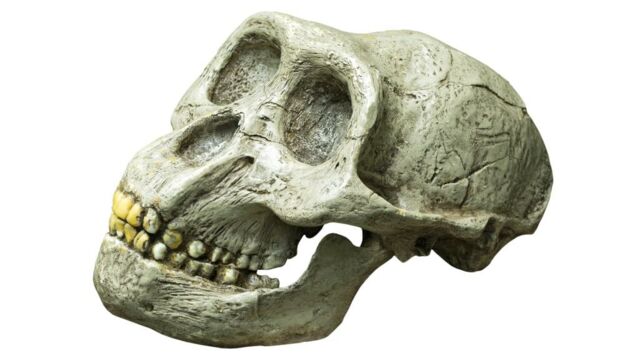Remarkable discovery of 1.8 million-year-old tooth that might belong to ancient human species

Archaeologists in Georgia have just found a tooth dating from prehistoric times. But what species of human did it belong to?
A team of archaeologists has just unearthed an extremely old tooth in a Georgian village where bodies dating back 1.8 million years had already been exhumed in the late 1990s. This discovery is rich in information about the history of mankind.
Discover our latest podcast
A prehistoric premolar
The tooth was found near Kvemo Orozmani, a small village in southern Georgia. Like the human bodies that were discovered at this site between the late 1990s and early 2000s, this tooth is estimated to be no less than 1.8 million years old!
More under this adMore under this adIt is probably a fourth premolar belonging to a human whose species has not yet been officially identified, but according to Giorgi Bidzinashvili, the main author of the study, the tooth could have belonged to Homo erectus.
Archaeologists in Georgia have found a 1.8-million-year-old tooth belonging to an early species of human which they say cements the region as the home of one of the earliest prehistoric human settlements in Europe, possibly anywhere outside Africa https://t.co/lWfrNdtPQSpic.twitter.com/1tAMdTQzk5
— Reuters (@Reuters) September 9, 2022
Arkeonews explained:
Homo erectus, a hunter-gatherer species considered to be the ancestor of modern humans, is thought to have left Africa about two million years ago.
The first human migrations
The age of this premolar is not the only element that interests researchers. Indeed, this tooth could help them to better understand the first migrations of humans, who basically lived in Africa.
More under this adMore under this adThe researchers explain in the study:
Orozmani, along with Dmanisi, represents the centre of the oldest distribution of old humans - or early Homo - in the world outside Africa
This article was translated from Gentside FR:
Read more:
⋙ Researchers discover prehistoric fossils of a rare bear-dog hybrid
⋙ Incredible discovery of over 500 prehistoric standing stones in Spain
⋙ Researchers unearth prehistoric panda fossils that reveal the mystery of their 'sixth finger'